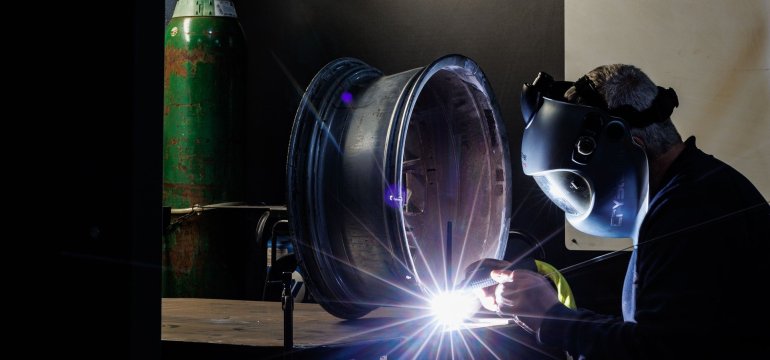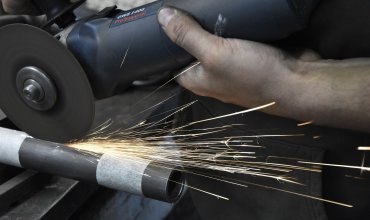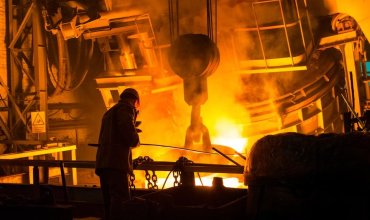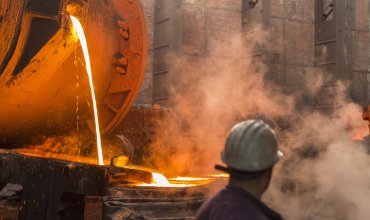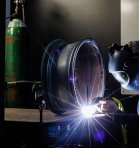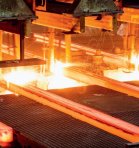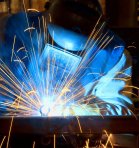Metallurgy, one of the oldest and most important engineering disciplines, has played a key role in the development of civilization for centuries. However, the modern metallurgical industry is changing at an extremely dynamic pace, driven by new technologies and growing market demands. One of the most important trends in recent years has been metallurgical process innovation and automation, which is modernizing every stage of metal production, increasing efficiency, precision and safety while reducing costs and environmental impact. This article explores the importance of these changes, their benefits and examples of application in Poland.
Modern management technologies in metallurgical processes
Integrated production management systems
Modern innovations in metallurgical processes and automation include the implementation of integrated production management systems (ERP - Enterprise Resource Planning). These systems enable close monitoring and control of every stage of production, from the ordering of raw materials to the delivery of finished products to the customer. They enable optimal resource planning, resulting in better utilization of machinery, raw materials and human labor. An example is the Polish steel plant ArcelorMittal Poland, which has successfully implemented an ERP system, resulting in a significant increase in productivity and reduction in production costs.
Automation of production lines
Automation of production lines involves the introduction of robots and computer-controlled equipment that replace or assist human labor. In today's metal plants, robots perform precise and repetitive operations, such as welding, forging and machining. Automation increases productivity, reduces production errors and improves the quality of manufactured products. In Poland, this process is particularly evident in the automotive industry, where manufacturer Volkswagen Poznań has invested in modern production lines with the latest generation of robots.
Optimizing processes through analytics and artificial intelligence
Use of big data and predictive analytics
Metallurgical process innovation and automation would not be possible without the use of advanced data analytics. The use of big data makes it possible to collect and analyze huge amounts of information generated during production. Thanks to predictive analytics, it is possible to predict machine failures, optimize raw material consumption or identify the most effective manufacturing methods. In Poland, for example, KGHM Polska Miedź uses advanced analytical systems to monitor the condition of machines, which helps reduce downtime and failures.
Artificial intelligence in metallurgical production
Artificial intelligence (AI) is playing an increasingly important role in managing metallurgical processes. AI algorithms enable automatic decision-making based on collected data, which speeds up and streamlines production processes. An example of the application of AI in Polish metallurgical plants is Huta Stalowa Wola, which has implemented AI systems to optimize metal casting and heat treatment processes, resulting in a significant improvement in product quality and cost reduction.
Modern methods of controlling and monitoring production
SCADA systems and their role in monitoring
SCADA (Supervisory Control and Data Acquisition) systems are a key component of modern metallurgical solutions that enable continuous supervision of production processes. These systems collect data from different parts of the plant and enable remote control of machinery and integration with other IT systems. Thanks to SCADA, it is possible to react quickly to any irregularities and failures, which increases the efficiency and safety of production. In Poland, these systems are used by, among others, the Łabędy Steelworks in Gliwice, which allows continuous monitoring of key production parameters.
Advanced quality inspection techniques
Innovations in metallurgical processes and automation also include modern quality inspection methods. The high quality of metallurgical products is crucial, especially in the aerospace, automotive or construction industries. Modern inspection techniques, such as computed tomography (CT), laser scanning or computer vision systems, make it possible to accurately check the internal and surface structure of metals. Polish company Famur S.A. uses detailed inspection techniques to check the quality of mining machinery parts, ensuring their high durability and reliability.
Automation vs. sustainable development and environmental protection
Reduction of energy consumption
One of the biggest advantages of innovation in metallurgical processes and automation is the ability to significantly reduce energy consumption. Modern technologies allow more efficient use of raw materials, which translates into lower energy consumption and reduced greenhouse gas emissions. In Poland, Cognor S.A., in its metallurgical plants, by introducing automation, has achieved a significant reduction in electricity consumption by optimizing steel melting and heat treatment processes.
Application of metal recycling technologies
As part of sustainable development, metallurgy is also betting on recycling of secondary raw materials. The automation of recycling processes allows the efficient recovery of metals from waste, reducing the need to extract natural resources. The Polish company Remondis Metal Recycling has implemented advanced metal waste sorting and processing lines, making it possible to recover high-purity raw materials and reuse them in production.
Changes in the labor market and development of employee competencies
New requirements for employees
The introduction of innovations in metallurgical processes and automation entails the need for employees to acquire new skills. The requirements for personnel are changing, as they must now have both technical knowledge and the ability to manage computer systems. In Poland, for example, companies implementing automation offer specialized training for employees to help them adapt to new technologies. This includes learning how to operate SCADA systems, industrial robots and programming basics.
The impact of automation on employment
Automation of manufacturing processes has raised concerns about job losses. In fact, while some positions may be replaced by machines, new employment opportunities are being created, particularly in the area of operation and maintenance of automated technologies. In Poland, there is a noticeable increase in the demand for automation engineers, IT specialists and service technicians, which is reflected in the growing number of job offers in these sectors.
Summary
In conclusion, it is worth emphasizing that innovation in metallurgical processes and automation bring great benefits to both companies and the entire economic ecosystem. Thanks to modern technologies, it is possible to increase production efficiency, improve product quality, reduce costs and reduce environmental impact. At the same time, despite the challenges associated with changes in the labor market, automation creates new opportunities for professional development and the acquisition of valuable competencies. Poland, with its metallurgical traditions and dynamically developing enterprises, is well on its way to a future in which innovation in metallurgical processes and automation will be key elements of success.


